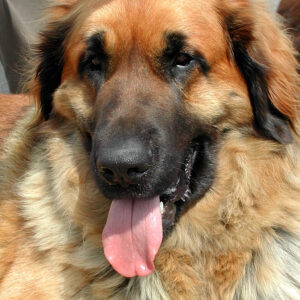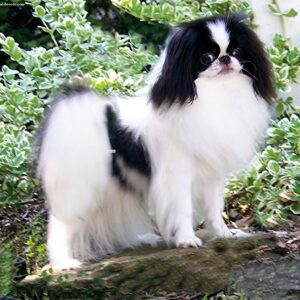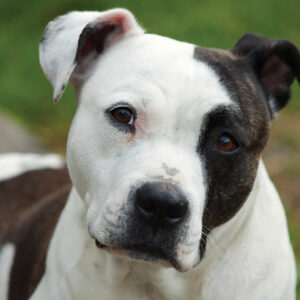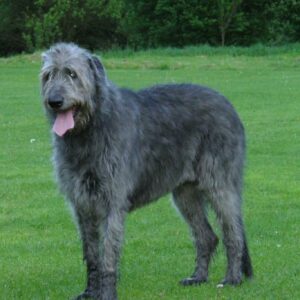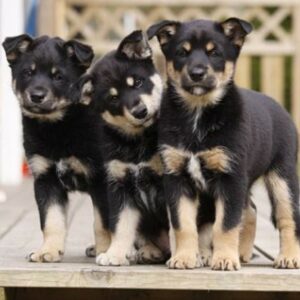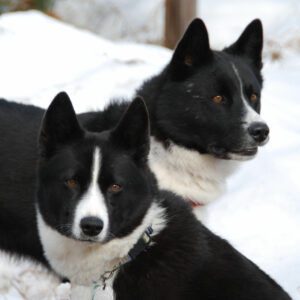Lhasa Apso is a breed of small dogs that has been widely loved and kept by dog enthusiasts in recent years. Originating from Tibet, Lhasa Apso is a loyal and affectionate pet that is perfect for families of all sizes. In this post, we will delve into the fascinating history of the Lhasa Apso breed, explore its unique characteristics, provide tips for choosing the best foods, training, and taking care of this breed, and answer common FAQs about Lhasa Apso dogs. So, whether you are a long-time pet lover or considering adopting a new furry friend, sit back, and enjoy our comprehensive guide to Lhasa Apso dogs!
History of Lhasa Apso Dogs
Lhasa Apso dogs have been around for centuries, and they are closely associated with Tibetan monasteries and Buddhism. In ancient times, Lhasa Apsos were trained to be watchdogs and alerted the monks to danger. They were held in high esteem and regarded as sacred animals. Lhasa Apso dogs were not introduced to the Western world until the early 1900s when a few specimens were exported to Britain.
The breed almost went extinct during the Chinese occupation of Tibet. After the occupation was over, some Lhasa Apso dogs were brought to England by a woman named Suydam Cutting, who was determined to preserve the breed. Since then, Lhasa Apsos have become a popular breed in the Western world and are often featured in dog shows.
Lhasa Apso dogs are characterized by their long, flowing hair, which was originally bred to protect them from the high altitude and cold temperatures of Tibet. Their haircuts were also symbolic; the monks shaved their entire bodies except for the head, where the hair was allowed to grow long and was often styled in different ways. This custom is still practiced today in many countries.
Throughout history, Lhasa Apso dogs have been known for their regal bearing, courage, and loyalty. They are lively and intelligent dogs that form deep bonds with their owners, making them excellent family pets. If you are looking for a dog that is both beautiful and loyal, then Lhasa Apso is the breed for you!
Location of Origins
Lhasa Apso dogs originated in Tibet, where they were kept by monks and aristocrats. The breed’s name comes from the Tibetan city of Lhasa, where they were first bred. Tibet is a high-altitude region with low oxygen levels, and the Lhasa Apso breed adapted to the harsh conditions by developing a thick, double coat that protected them from the cold.
Lhasa Apso dogs were highly valued in Tibet and were often given as gifts to visiting dignitaries. In ancient times, people believed that Lhasa Apsos brought good luck and ward off evil spirits. They were also used as guard dogs in the monasteries, where they would alert the monks to any intruders.
Today, Lhasa Apso dogs are found all over the world, and they have become a popular breed in the West. Although they are no longer used as guard dogs, they are still highly regarded for their intelligence, loyalty, and beauty.
Characteristics of Lhasa Apso Dogs
Lhasa Apso dogs are small, compact dogs with flowing hair and a regal bearing. They are highly intelligent and form deep bonds with their owners. Lhasa Apso dogs are known for their courageous and independent nature, and they can be stubborn at times.
The Lhasa Apso breed is highly adaptable and can live in a variety of environments, including apartments and houses. They have low exercise needs and are content to spend most of their day sleeping or lounging around the house, making them perfect for families of all sizes.
Lhasa Apso dogs are also known for their long hair, which requires a lot of maintenance. You will need to brush your dog’s hair daily to prevent matting and tangles. Regular grooming is essential to keep your Lhasa Apso’s hair looking healthy and shiny.
The Lhasa Apso breed is prone to certain health problems, including eye diseases, luxating patella, and kidney issues. It is essential to keep your Lhasa Apso up-to-date on their vaccinations and take them for regular check-ups with the vet.
Lhasa Apso dogs are also sensitive to cold temperatures, so it is important to keep them warm on chilly days. You can easily achieve this by providing your dog with a cozy bed, a warm blanket, and a sweater to wear when they go outside.
Choosing the Best Foods for Lhasa Apso Dogs
Lhasa Apso dogs are small but mighty, and they have unique dietary requirements that you will need to take into account when choosing their food. Lhasa Apso dogs are prone to obesity, and overfeeding can lead to a host of health problems.
When choosing the best foods for your Lhasa Apso dog, look for high-quality, lean protein sources, such as chicken, turkey, and fish. Avoid foods that are high in fat or contain fillers and additives, as they can cause digestive issues in your dog.
You can also supplement your Lhasa Apso’s diet with fruits and vegetables, which will provide them with essential vitamins and minerals. Some good options include carrots, green beans, and sweet potatoes.
When feeding your Lhasa Apso, it is important to monitor their calorie intake carefully. Talk to your veterinarian about how much food your dog should be eating each day, and stick to their recommendations to ensure that your Lhasa Apso maintains a healthy weight.
Finally, make sure that your Lhasa Apso always has access to fresh, clean drinking water. This will help keep them hydrated and prevent health problems such as kidney stones.
Training Lhasa Apso Dogs
Lhasa Apso dogs are highly intelligent and can be trained to do a variety of tricks and behaviors. However, they can be stubborn at times, so it is important to use positive reinforcement and patience when training your dog.
Start by teaching your Lhasa Apso basic commands, such as sit, stay, and come. Use treats and praise to reward good behavior, and be consistent with your training. Lhasa Apso dogs respond well to gentle guidance and encouragement, so avoid using harsh or punitive training methods.
Once your Lhasa Apso has mastered the basics, you can move on to more advanced training, such as agility or obedience training. These activities will not only challenge your dog’s mind but also provide them with much-needed exercise and mental stimulation.
Remember to always keep training sessions short and fun. Lhasa Apso dogs have a short attention span and can quickly become bored, so try to keep the training sessions lively and engaging.
Finally, it is important to socialize your Lhasa Apso early and often. Introduce them to different people, animals, and environments to help them develop good social skills and prevent aggressive behavior.
Taking Care of Lhasa Apso Dogs
Taking care of a Lhasa Apso dog requires dedication and attention to detail. You will need to provide your dog with regular exercise, grooming, and healthcare to keep them happy and healthy.
Exercise is important for Lhasa Apso dogs, but they have low energy levels and are content with short walks or play sessions. A 20-30 minute walk once or twice a day should be enough to keep your Lhasa Apso healthy and happy.
Grooming is also important for Lhasa Apso dogs. Their long hair requires daily brushing to prevent matting and tangling. You will also need to bathe your Lhasa Apso every few months to keep their coat looking healthy.
Regular check-ups with the vet are essential to keep your Lhasa Apso healthy. Make sure that your dog is up-to-date on their vaccinations and take them for regular check-ups to catch any health problems early.
Finally, make sure that your Lhasa Apso dog is happy and comfortable in their environment. They should have a cozy bed, toys to play with, and access to fresh water at all times. By providing your dog with the care and attention they need, you can ensure that they will be a loyal and loving companion for many years to come.
FAQs
1. Do Lhasa Apso dogs shed a lot?
Yes, Lhasa Apso dogs do shed, but their hair is long and dense, so it is less noticeable than other breeds. You will need to brush your dog’s hair daily to prevent matting and tangling.
2. Are Lhasa Apso dogs good with children?
Yes, Lhasa Apso dogs are great with children. They are loyal and affectionate pets that form deep bonds with their owners, making them perfect for families of all sizes.
3. Are Lhasa Apso dogs hypoallergenic?
No, Lhasa Apso dogs are not hypoallergenic. While their long hair may reduce the amount of dander that they produce, they still shed and may trigger allergies in some people.
Conclusion
Lhasa Apso dogs are a regal and beautiful breed that is well-loved by dog enthusiasts all over the world. They are loyal and affectionate pets that are perfect for families of all sizes. If you are considering adopting a Lhasa Apso, remember that they require regular exercise, grooming, and healthcare to stay healthy and happy. With love, attention, and patience, you can provide your Lhasa Apso with a lifetime of companionship and joy!

